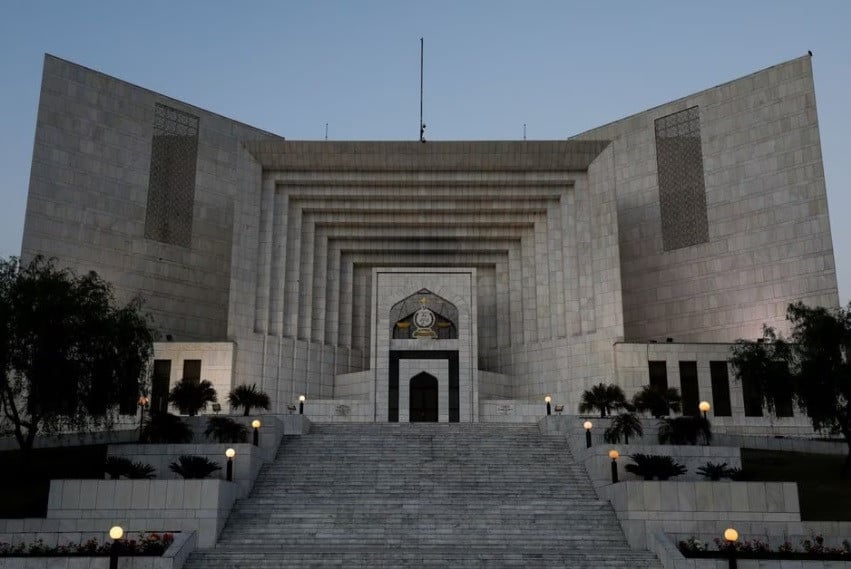
The federal government on Friday sought a month’s time from the Supreme Court to consider the option of giving the right of appeal to the suspects, who would be tried in military courts in connection with the May 9 violence.
The attorney general for Pakistan (AGP) sought time to seek the instructions from the federal government on the matter of providing the right of appeal to the civilians against the judgments issued in their military court trials.
He added that he would inform the court about points (v) and (vi) noted in paragraph two of its order dated June 27, 2023.
“The request is allowed," read a four-page written order issued by a six-member larger bench of the apex court, led by Chief Justice of Pakistan Umar Ata Bandial, while hearing constitution petitions against the trial of civilians in military courts -- indicating a change of stance in the SC’s approach towards the matter.
The order further stated that during the course of the investigations, AGP Mansoor Awan, while giving an assurance to the bench, had said that were still prima facie no offence entailing the death penalty or a lengthy prison sentence against any detained civilian.
The AGP informed the bench that so far, no military trial of any detained civilian had commenced and it would not be started without prior information to the court.
He continued that the suspected civilians would have the right to appoint private counsel of their own choice for their defence. The family members and legal teams of the suspected civilians would be allowed to attend the trial proceedings as well.
The evidence would be recorded at the trial of suspected civilians under the law and procedure applicable to the criminal courts of ordinary jurisdiction. The judgments delivered in the trials of the suspected civilians would be supported by reasons.
AGP Awan told the larger bench that this aspect required more careful consideration on account of its effect on the Indian spy Kulbhushan Jadhav’s case, wherein the government had promulgated an ordinance for giving an effective review in view of the International Court of Justice (ICJ) order.
The chief justice observed that it seemed the government was inclined to consider the aspect of the right of appeal but it needed time.
He continued that now the matter was in the investigation stage and no trial had commenced so far. The top judge expressed his satisfaction over the federal government’s actions in the case. He also inquired how the suspected civilians were being treated. “Is it possible for a group of lawyers to visit them to examine their conditions?” he asked.
However, the AGP replied that only the families of the suspected civilians could visit them.
Justice Bandial noted that the court could appoint a retired judge to examine their conditions.
The petitioners' counsel, Sardar Latif Khosa, expressed serious apprehensions over the miserable conditions of the suspected civilians, adding that it was similar to what had happened during Gen Ziaul Haq’s era. “This is not Ziaul Haq's era," responded CJP Bandial.
He added that the country was not under martial law. “If anything happens then we will interfere,” he added.
The top judge also expressed his satisfaction over the federal government's cooperation in this matter. The hearing of case was adjourned until August 1.



1731550446-0/Polymarket-(1)1731550446-0-165x106.webp)

1729512368-0/liam-(8)1729512368-0-165x106.webp)
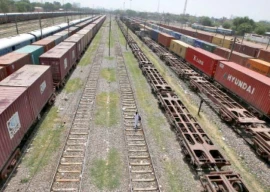
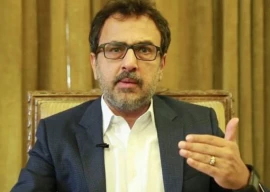
1730379446-0/WhatsApp-Image-2024-10-31-at-17-56-13-(1)1730379446-0-270x192.webp)




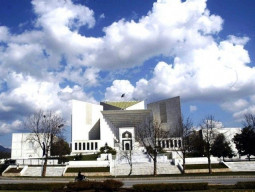
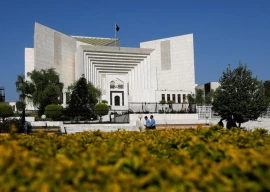






COMMENTS
Comments are moderated and generally will be posted if they are on-topic and not abusive.
For more information, please see our Comments FAQ